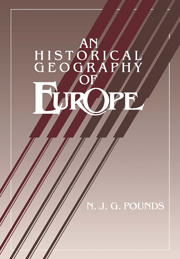Part I - The classical civilizations
Published online by Cambridge University Press: 14 January 2010
Summary
There is, from the geographical viewpoint, no particular merit in choosing the middle years of the fifth century B.C. for study. A date could have been chosen a century earlier or a century later; the result would have been much the same, for in the material things of life change was remarkably slow. But the middle years of the fifth century B.C. made up for one corner of Europe a period of particular interest and importance. It was the time when classical Greek civilization flourished and bequeathed to posterity a legacy in literature, art and philosophy which has never at any time lost its significance. This gives fifth-century Greece a particular importance, and, though Greek drama may have nothing to do with the distribution of city-states or the cultivation of crops, the latter at least forms part of the background against which the Greek tragedians wrote.
By the mid-fifth century the Greeks had fought their great war against the Persians; they were secure and enjoying the fruits of victory. It was, for the Athenian people in particular, a time for hope and euphoria, such as not infrequently follows a long and exhausting war. A few years later this period of crowded achievement was to be interrupted by jealousies and feuds among the Greeks themselves which were to bring on the Peloponnesian War. This short period is, for the Greeks, one of the best documented in ancient history.
- Type
- Chapter
- Information
- An Historical Geography of Europe , pp. 23 - 26Publisher: Cambridge University PressPrint publication year: 1990



